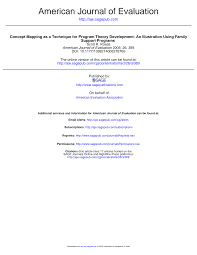
The American Program Evaluation Association
The American Program Evaluation Association (APEA) provides standards of ethical behavior for evaluation professionals. The AEA Guiding Principles for Evaluators set forth the standards for systematic inquiry, competence, integrity, respect for people, and responsibilities for the general welfare. The AEA also sponsors two journals: the American Journal of Evaluation and New Directions for Evaluation. These publications focus on different aspects of evaluation, including the ethical conduct of research and the disclosure of confidential information.
The AEA Code of Ethics, a guide for evaluators, emphasizes the importance of balancing the interests of stakeholders with the integrity of the evaluation. This code of ethics outlines what the AEA considers ethical conduct. It addresses topics such as a balance between competence and ethics, and ensures that the team is culturally competent. APEO also encourages evaluators to consult colleagues to ensure that the evaluator is addressing the ethical issues that may arise.

The AEA also offers guidance on ethical conduct, including a code for evaluators
APEOs encourage evaluators to maintain high standards of professionalism and conduct. The AEA’s Code of Ethics is updated regularly, and it encourages evaluators to take time to review and reflect on their own behavior. In addition, evaluators should understand that they are providing expert services to stakeholders and must be aware of their limitations, which may include the inclusion of non-professionals in the team.
In addition to the APEO Code of Ethics, AEA members must ensure that their work meets the highest professional standards. The professional standards for evaluation also require the participation of members of the Association’s board. Membership in this organization is highly valuable and is free of charge. The APEO Guidelines for Professional Ethical Conduct are the basis for all evaluations. The APEO Code of Ethics and Ethical Conduct must be followed by evaluators who want to practice ethically.
The AEA’s Guidance Principles for Ethical Conduct outline the ethical conduct of evaluation professionals
The APEO codes of ethics include standards for the integrity and competence of evaluators. The APEO is an ethical code for evaluators. It has a set of core values that the APA espouses. The AEA’s Guidance Statements for Ethical Conduct of Evaluations reflects these values.
As an APEO member, you must adhere to the ethical standards of the organization. The APEO Code of Ethics is a guide for ethical conduct in evaluation. It is intended to ensure that evaluators meet the ethical standards for their profession, including the ethical conduct of evaluators. The APEO also states that evaluators must be fair and avoid discrimination.
The APEO Code of Ethics is a set of guidelines for professional ethics in evaluation. In addition to evaluators’ professional ethics, they must follow a Code of Conduct, which defines a standard for a specialized field of evaluation. The APEO Guideline of Ethics for Program Evaluations has been developed by the APEO. In this case, the APEO is the governing body. The APA does not recommend any particular methodology, but rather, recommends that evaluators apply the principles of evaluators.
To achieve credibility, evaluators must conduct their work in accordance with ethical standards
In addition to following the APEO Code of Ethics, evaluators must follow a Code of Conduct that is in line with their profession. In addition, they must adhere to a Code of Conduct that states that they must follow the APEO Guidelines and be transparent. The APEO has created a guideline for program evaluation.
In addition to ethical standards, APEO Guidelines for Evaluators are essential for all aspects of evaluation. In order to be a member of APEO, you should also adhere to the AEEO Guidelines for Professional Ethical Conduct. The Code of Ethics of the APEO is a set of principles that govern the conduct of evaluators. The AEEO Code is important for any program or organization, and you should adhere to it while working.
Evaluators should adhere to the Code of Ethics of the APEO
This code is required by law in the U.S. and Canada, and it requires that evaluators comply with it. In addition to the APEO Guidelines, AEEOs must have proper training and certification. This means they must be trained, certified, and have professional experience. They must be familiar with all of the ethical guidelines of the APEO.
